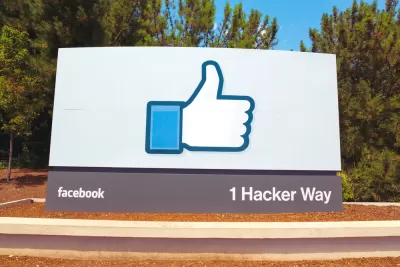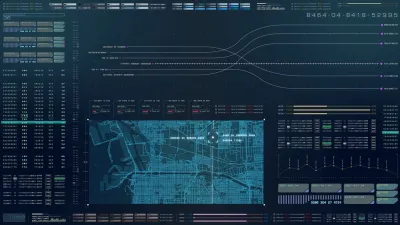Facebook has announced plans for a new kind of city, which will begin as a new digital layer over reality in Menlo Park, California before quickly spread over everything.

At a press conference announcing the creation of a new smart city concept called Zuckerburgh, Facebook founder and CEO Mark Zuckerberg touted the project's completely novel approach to city governance.
"What makes Zuckerburgh so smart, and why I'm so excited about it, is its use of technology," said Zuckerberg at the press conference. According to Zuckerberg, the development process of Zuckerburgh is grounded in Facebook's original intentions as a social media platform. "The infrastructure of Zuckerburgh is its social network, and the social network of Zuckerburgh is its infrastructure," said Zuckerberg.
As a primary demonstration of its potential to disrupt democracy, Zuckerburgh will generate revenue using a government financing innovation Facebook engineers have dubbed "data increment financing," based on less technologically advanced forms of value capture popular in less technologically advanced cities. "Basically as more data comes online, the value of all the data we're already collecting will increase," explained Zuckerberg. "We'll acquire that incremental increase in the value of the data and invest it back into civic spaces and quality of life investments in the social network—like faster advertisement delivery and a more targeted process for connecting landlords with desirable tenants."
For the pilot stage of the project, a Stanford email address will be necessary to sign up for Zuckerburgh. Eventually registration will be opened to a broader audience of universities and then to the broader public. "Eventually it's possible even your mom and her friends could be residents of Zuckerburgh," said Zuckerberg.
FULL STORY: April Fool's Day

Planetizen Federal Action Tracker
A weekly monitor of how Trump’s orders and actions are impacting planners and planning in America.

Maui's Vacation Rental Debate Turns Ugly
Verbal attacks, misinformation campaigns and fistfights plague a high-stakes debate to convert thousands of vacation rentals into long-term housing.

Restaurant Patios Were a Pandemic Win — Why Were They so Hard to Keep?
Social distancing requirements and changes in travel patterns prompted cities to pilot new uses for street and sidewalk space. Then it got complicated.

In California Battle of Housing vs. Environment, Housing Just Won
A new state law significantly limits the power of CEQA, an environmental review law that served as a powerful tool for blocking new development.

Boulder Eliminates Parking Minimums Citywide
Officials estimate the cost of building a single underground parking space at up to $100,000.

Orange County, Florida Adopts Largest US “Sprawl Repair” Code
The ‘Orange Code’ seeks to rectify decades of sprawl-inducing, car-oriented development.
Urban Design for Planners 1: Software Tools
This six-course series explores essential urban design concepts using open source software and equips planners with the tools they need to participate fully in the urban design process.
Planning for Universal Design
Learn the tools for implementing Universal Design in planning regulations.
Heyer Gruel & Associates PA
JM Goldson LLC
Custer County Colorado
City of Camden Redevelopment Agency
City of Astoria
Transportation Research & Education Center (TREC) at Portland State University
Jefferson Parish Government
Camden Redevelopment Agency
City of Claremont





























